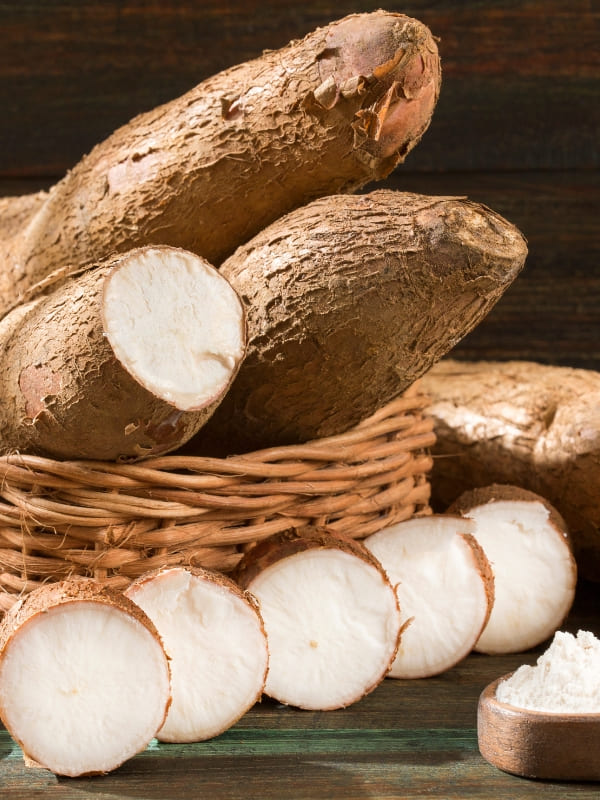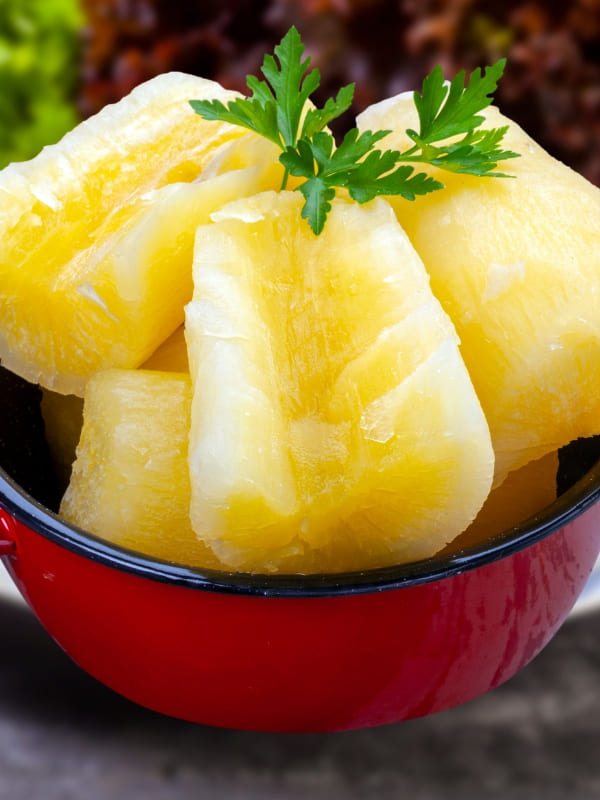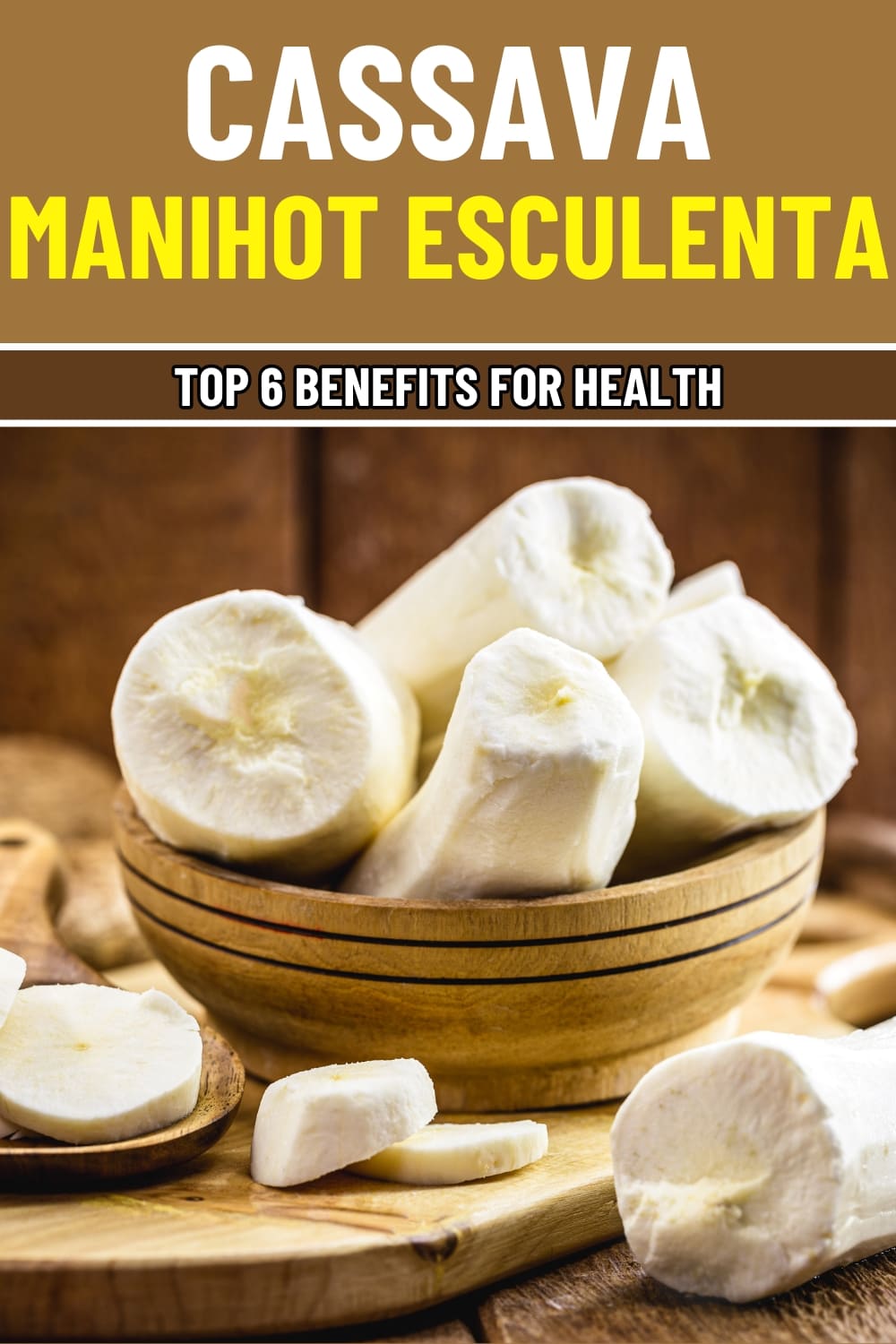Did you know that cassava is more than just a staple food? This root vegetable, often used in tropical regions, is packed with essential nutrients that can support your overall well-being.
From boosting energy to improving digestion, cassava has been a lifesaver for millions.
Are you looking for a natural way to enhance your health? Let’s explore how this humble plant can work wonders for your body.
#1. A Rich Source of Energy
Cassava is a carbohydrate powerhouse, making it an excellent energy booster. A 100-gram serving of raw cassava provides about 38 grams of carbohydrates, ideal for refueling your body after physical activities.
This makes it a perfect addition to diets for athletes or anyone needing sustained energy throughout the day. Over time, its slow-release carbs help maintain stable blood sugar levels.

#2. Promotes Digestive Health
Cassava is loaded with dietary fiber, which aids digestion and prevents constipation. A single cup of boiled cassava offers approximately 3 grams of fiber, supporting healthy bowel movements and promoting a balanced gut microbiome.
Regular consumption of cassava can alleviate digestive discomfort and encourage better nutrient absorption in the long term.
#3. Supports Immune System Function
Rich in vitamin C, cassava contributes to a stronger immune system. One serving provides about 20% of the daily recommended intake of vitamin C, which helps protect the body against infections.
Over weeks of consistent consumption, cassava can reduce your susceptibility to common colds and enhance your body’s defense mechanisms.

#4. Improves Bone Health
Cassava contains calcium and magnesium, two essential minerals for maintaining strong bones. A cup of boiled cassava contains around 33 milligrams of calcium and 43 milligrams of magnesium.
These nutrients work together to improve bone density and prevent conditions like osteoporosis when incorporated regularly into your diet.
#5. Enhances Eye Health
Cassava is a source of vitamin A and carotenoids, which are vital for maintaining healthy vision. These compounds help prevent eye-related disorders such as macular degeneration and night blindness.
Long-term consumption of cassava can improve overall eye health and protect against age-related vision problems.

#6. Aids in Weight Management
While cassava is calorie-dense, its fiber content helps control hunger by promoting satiety. Eating cassava in moderation can be a useful strategy for managing weight, as it reduces the urge to snack between meals. \
Over weeks of use, cassava helps stabilize energy levels, making it easier to maintain a healthy diet.
How to Use Cassava
Preparation Tips
1. Boiled Cassava:
First, begin by peeling the cassava to remove the tough outer skin. Next, cut it into smaller, manageable pieces to ensure even cooking.
Then, boil the cassava in water for about 20–30 minutes, or until it becomes soft and tender. Once done, you can serve it as a simple yet satisfying side dish.
2. Cassava Flour:
To explore a gluten-free option, you should use cassava flour in your baking recipes. For example, you can substitute it for traditional flour to make bread, pancakes, or muffins.
This is not only a healthier choice but also versatile in its use.
3. Cassava Chips:
For a delicious snack, start by slicing cassava thinly. Then, season the slices with your favorite spices or salt. Next, either bake them in the oven or fry them until they turn golden and crispy. Finally, enjoy them as a crunchy, guilt-free treat.
Incorporation Ideas
1. Soups and Stews:
Firstly, you can add boiled cassava to soups or stews. This not only enhances the texture but also provides added nutrition to your dishes.
2. Smoothies:
Secondly, blend cassava flour into your morning smoothies. This serves as a fiber-rich thickener, giving your drink a creamy consistency while boosting its health benefits.
3. Gluten-Free Recipes:
Lastly, use cassava flour to create gluten-free alternatives. You can start with pizza crusts or tortillas, making them perfect for those looking to avoid gluten without compromising on taste.

Cautions and Precautions
Raw Cassava Contains Toxins: peel and cook cassava thoroughly to eliminate these harmful compounds.
Cassava is calorie-dense. Overeating may lead to weight gain, so consume in moderation.
Those with diabetes should monitor portion sizes due to cassava’s high carbohydrate content. Similarly, individuals with kidney problems should be cautious, as cassava contains oxalates that can exacerbate kidney issues.
Disclaimer
This article is for informational purposes only and does not substitute professional medical advice.
Always consult a healthcare provider before incorporating new foods into your diet, especially if you have specific health conditions.

Uncover the Hidden Health Benefits of Cassava, Nature’s Nutritional Powerhouse
